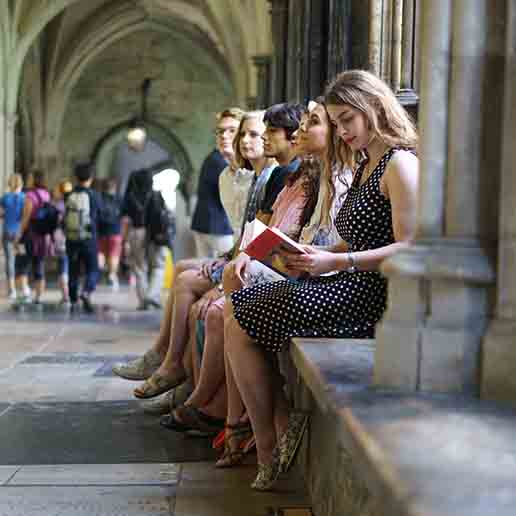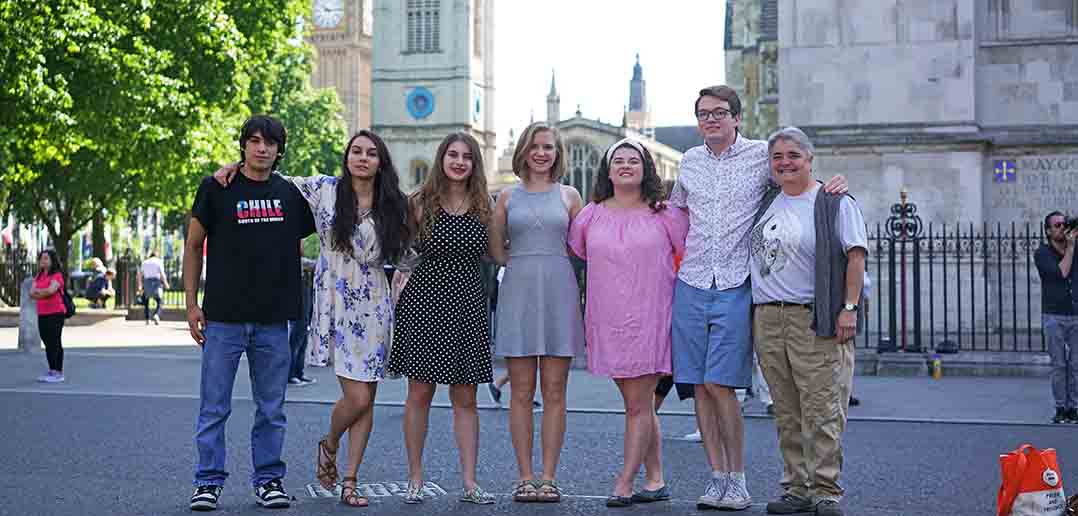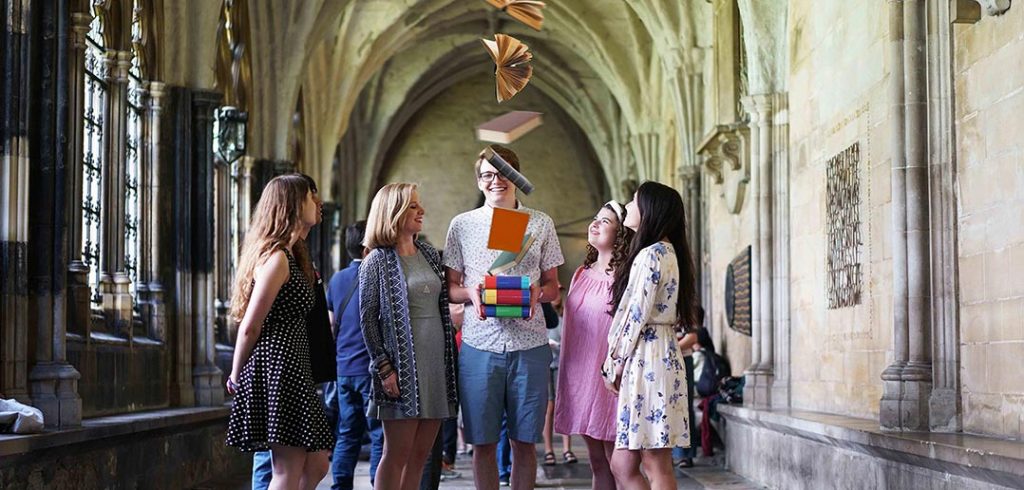In a summer course that combines philosophy and literary analysis with the alchemy at play in the Harry Potter novels, Judith Jones, Ph.D., and her class have been searching London for magic—or more accurately, “dimensions of the history of ‘magic’ broadly construed in the United Kingdom,” as her course syllabus describes.
Based at Fordham’s London Centre, the students are relating philosophical texts to the novels in a course, Harry Potter and Philosophy: Magic Meets Metaphysics at King’s Cross. As part of the curriculum, the class is also going on several excursions—from Westminster Abbey to the Harry Potter Studio to Durham Cathedral to Oxford University.“In the Harry Potter books, magic is a broad metaphor for human agency,” said Jones, an associate professor of philosophy who believes the series’ popularity reflects the mood at end of the 20th and beginning of the 21st centuries.

“It’s not an accident that the books tap into an affirmation of our humanity when it’s not clear what the future of humanity looks like in politics, science, and economics—it’s not even clear that we are agents at all,” she said.
Jones said the course’s cross-disciplinary nature mimics that of the alchemists of history (think Sir Isaac Newton), whose interests blurred the lines between religion and science.
“Alchemists looked toward science as well as religion as ways to meaningfully participate in the world,” said Jones.
According to Jones, the very title of Harry Potter and the Philosopher’s Stone (aka The Sorcerer’s Stone in the United States) suggests the alchemists’ attempts to produce an object—the Stone—that would yield immortality as well as turn base metals into gold.
“They did a lot of chemical experimentation, out of which grew in part [the field of] chemistry,” she said. This exercise in “transforming materials” went hand-in-hand with remaking oneself spiritually.
“In psychological terms, it was an attempt to overcome the ego,” she said.
In the postmodern period, however, people have become used to keeping science and spirituality separate, as the philosopher Descartes modeled them, Jones said. But Jones fundamentally believes that the compartmentalization of knowledge is not best for humanity.
“At the human level, we need the integration of these and other disciplines,” she said.
For students, the Harry Potter course has helped to reintegrate far-flung fields of thinking.
“My thoughts on Harry Potter as a work of literature have been subject to plenty of expansion,” said Fordham College at Rose Hill rising senior Sebastian Ullman. “I’ve also found that my thoughts on fantasy as a genre, and philosophy in general, have been deeply enriched.
“But the excursions planned by Dr. Jones have been far and away the most incredible part of my trip,” he said.
Seeing the sights has been equally exciting for Jones; though she had been to Scotland, she’d never visited England before.
“At some of the places we visit, I find myself with my jaw gaping open—and in genuine awe,” she said.


